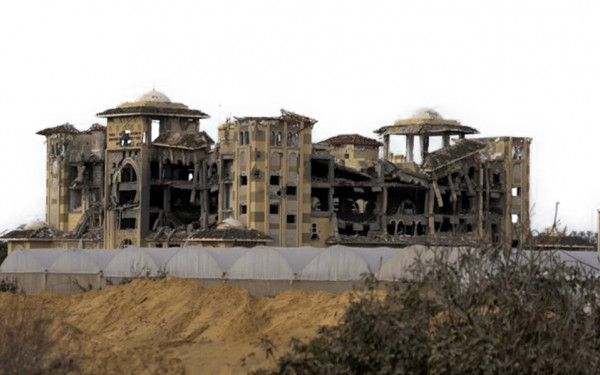Former fellows raise concerns with genocide institute closure
Critics say Concordia University’s closure of MIGS is a substantial loss
Concordia University’s decision to close the Montreal Institute for Genocide and Human Rights Studies (MIGS) has sparked criticism amongst students and scholars.
Founded in 1986 by Concordia professors Frank Chalk and Kurt Jonassohn, the institute was the leading think tank in Canada “working at the intersection of human rights, conflict and emerging technologies.”
The university listed financial constraints as the primary reason for the closure. Concordia spokesperson Julie Fortier told The Link that a divergence in the academic orientations of Concordia researchers and MIGS also led to the decision to cease operations.
“While we value the advocacy work done by MIGS over the years, as we are an academic institution, we will always give priority to initiatives that further strengthen the work done by our researchers,” Fortier said.
According to Eric Meerkamper, a former fellow at MIGS, he did not experience the divergence firsthand.
“There’s no explanation about what work wasn’t aligned,” he said, adding that he found the statement released by the university was inadequate and incomplete.
Meerkamper believes Concordia’s decision to close the institute was “tone-deaf” in the current political climate, especially with the rise of what he called anti-democratic and authoritarian regimes.
He also believed that MIGS was an important platform to bring together people from different sectors.
“It had a number of different conferences and panels, online discussions, really as an important platform to have discussions around a lot of these human rights topics, hate speech, digital authoritarianism, and bringing people like Nobel Peace prize winners and other key speakers,” Meerkamper said. “[It was] a platform for that very diverse group.”
Yet MIGS has received criticism of its silence on Palestinian matters. As opposed to other departments, such as the Department of Communication Studies and the Department of Geography, Planning and Environment, MIGS never adopted a Boycott, Divestment, Sanctions (BDS) motion. All statements in support of the BDS movement were removed from the Concordia website by the university, according to a now-deleted Instagram story from the Geography Undergraduate Student Society.
MIGS led many initiatives, including Will to Intervene which aimed to mobilize politicians in the face of genocides and other crimes against humanity. Another prominent initiative was the Digital Mass Atrocity Prevention Lab, which in one form sought to combat “extremist ideology” on the internet through the #No2DigitalExtremism initiative. This project looked to bring on youth as “global ambassadors” to help combat the recruitment of young people to extremist movements on social media.
Fannie Lafontaine, professor and Canada Research Chair on International Criminal Justice and Fundamental Rights at Université de Laval, said that the closure is a loss for Canadian students looking to learn about the subject from international personas.
“MIGS was always commenting on [genocide and human rights atrocities] and were at the centre of a lot of networks,” said Lafontaine, who is a former MIGS fellow.
According to Lafontaine, MIGS had a good reputation internationally. She further added that the closure of the institute is the loss of an important voice.
“Canadian academics and Canadian researchers who do that kind of work are super important to inform policy decisions, and the research therefore feeds the policy and policy feeds research,” Lafontaine said. “Relationships and the training of students, which MIGS was doing as well, is crucial for Canada and Canadian-based universities and researchers to contribute to that discourse at the international level.”
Former MIGS fellows aren’t the only academics who see the closure as a loss. Alex Neve, a senior fellow at the Graduate School of Public and International Affairs at the University of Ottawa, feels the timing of this closure is myopic.
“At a time when human rights are aggressively challenged and contested in the corridors of power around the globe,” Neve said, “we need more places that deepen our understanding and provide a space to develop and advance agendas for change, not fewer.”







